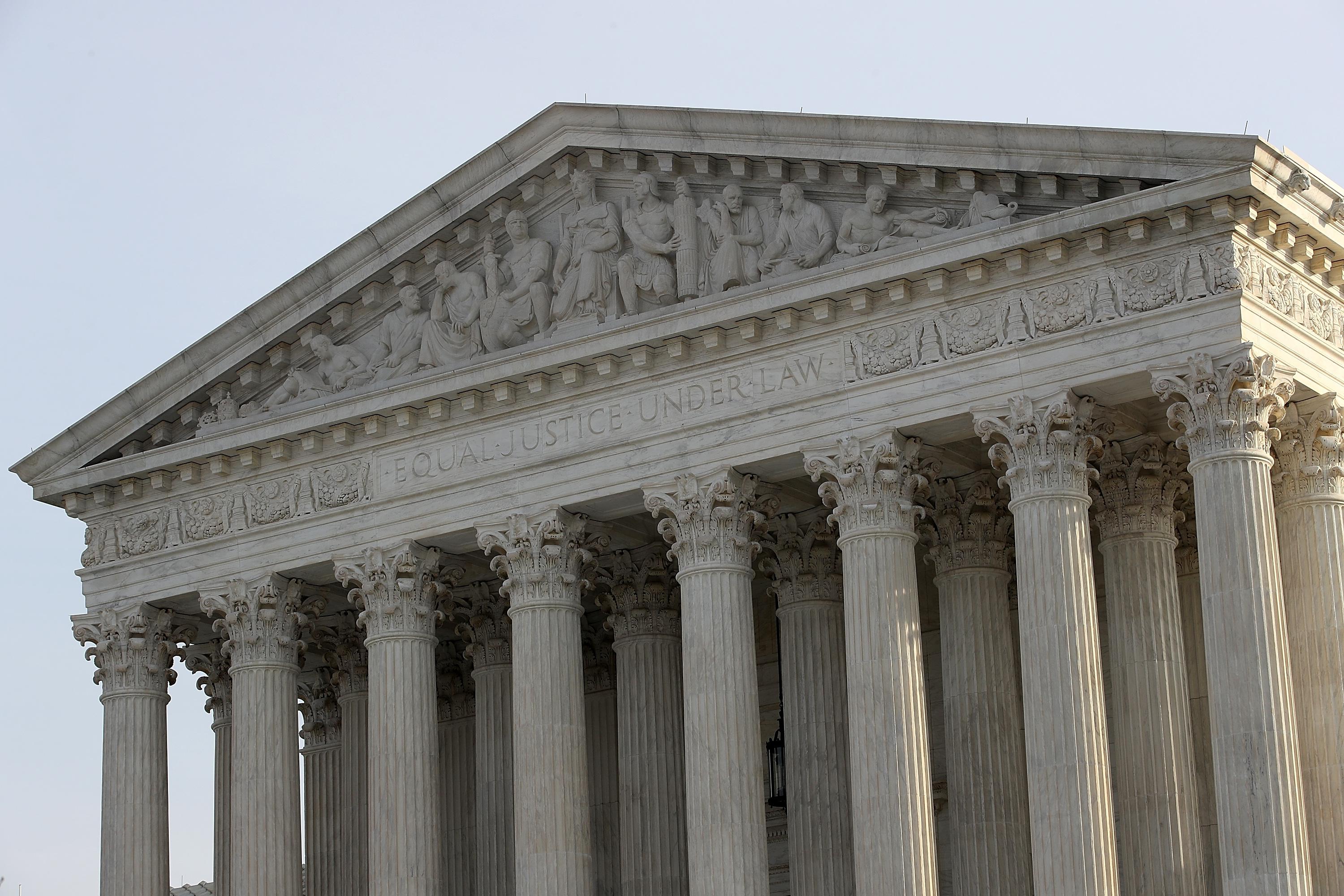On Monday, a federal court rejected Pennsylvania Republicans’ challenge to a new congressional map commissioned by the state Supreme Court to remedy a previous GOP gerrymander. The three-judge panel, made up entirely of Republican appointees, unanimously tossed out the lawsuit, holding that the plaintiffs lacked standing to attack the gerrymander-free map in court. A few hours later, the U.S. Supreme Court also rejected Republican lawmakers’ emergency appeal seeking to block the new map. The two decisions effectively ensure that Pennsylvania’s 2018 congressional elections will be held under fair maps—unless, perhaps, the GOP resorts to an extreme measure like the impeachment of state Supreme Court justices.
Monday’s orders mark the latest chapter in a heated skirmish between Pennsylvania’s Republican-dominated legislature and its state Supreme Court, which leans Democratic. In January, the court ruled 5–2 that Republicans had gerrymandered Pennsylvania’s congressional district along partisan lines in violation of the state constitution, which requires “free and equal” elections. (Legislative Republicans filed an emergency appeal to the U.S. Supreme Court, which Justice Samuel Alito turned down without comment.) The state Supreme Court also directed the elected branches to devise a fairer map for use in the 2018 election. Republican leaders promptly drew another skewed map, which Democratic Gov. Tom Wolf rejected. So the court adopted a map drawn by Stanford Law School professor Nathaniel Persily.
At that point, a group of Republican lawmakers—both state legislators and congressional representatives—filed suit to block the new map. In an unusual move, they asked both a federal district court and the U.S. Supreme Court to intervene. SCOTUS rejected the appeal with no noted dissents. The federal district court also dashed Republicans’ hopes for a quick injunction. It did so without actually reaching the merits of the case.
The GOP argues that the state Supreme Court violated the U.S. Constitution’s Elections Clause, which generally lets state legislatures prescribe “the times, places and manner of holding elections for senators and representatives.” Pennsylvania Republicans say this clause gives them—not the state Supreme Court—a right to draw the congressional map. This claim is quite weak, since the U.S. Supreme Court has found that legislatures don’t hold this power exclusively, and courts have long stepped in to draw remedial maps.
But the three-judge panel saw a more fundamental threshold problem with Republicans’ lawsuit: Neither group of plaintiffs—two state legislators and eight congressmen—have constitutional authority to challenge the map in court. In order for state legislators to sue on behalf of their chamber, the court explained, they must be fighting some “injury” that “affects all members of the legislative institution equally.” But the GOP legislators who sued are speaking only for Republicans—not for their chamber as a whole. That injury simply isn’t sufficient to give these lawmakers standing.
The congressional representatives didn’t fare much better. Their only real “injury,” the court noted tartly, is that the previous gerrymander “did not survive,” potentially imperiling their seats. That is “plainly what all of the plaintiffs dislike,” the court explained—but it is not an injury that gives them authority to sue under the Elections Clause; you do not have a constitutional right to keep your congressional seat because you really, really want to. Since none of the plaintiffs had standing, the court concluded, the suit must be tossed.
Although the court didn’t reach the merits, it dropped a few hints as to where it might have landed on the matter. In a telling passage, the court wrote that the plaintiffs “readily concede that the Pennsylvania Supreme Court has the authority to review redistricting legislation for compliance with the Pennsylvania Constitution.” That, it added, “is a sensible concession”—citing the U.S. Supreme Court decision declaring:
Nothing in [the Elections] Clause instructs, nor has this Court ever held, that a state legislature may prescribe regulations on the time, place, and manner of holding federal elections in defiance of provisions of the State’s constitution.
Here, the district court implied that even if these Republicans had standing to sue, they would obviously lose. The U.S. Constitution does not grant GOP politicians a right to choose their own constituents, protect their incumbencies, and shield their legislative majorities from competition. At long last, the end of the kerfuffle may be in sight—unless, of course, the GOP turns to impeachment. Several Republicans have already floated the idea of removing the Democratic justices from the Pennsylvania Supreme Court. If they are going to act on this extraordinary incursion on judicial independence to try once again to salvage these bankrupt maps, the time would be now.
